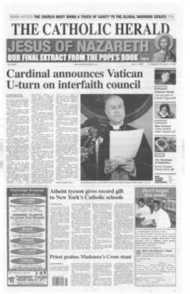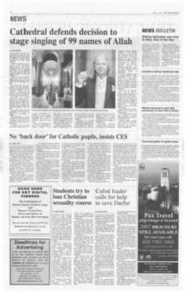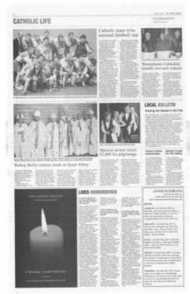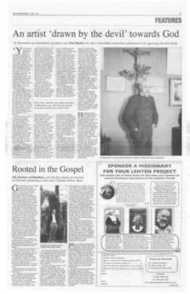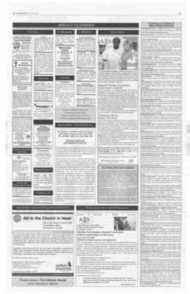Page 2, 1st June 2007
Page 2
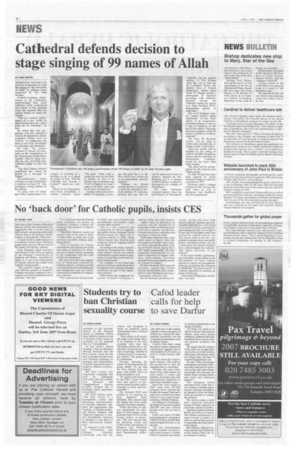
Report an error
Noticed an error on this page?If you've noticed an error in this article please click here to report it.
Tags
Share
Related articles
Catholic Education Chief Appeals To Teachers To Defend...
Church Supports Labour Ban On Catholic Schools...
No Secular Quotas For Catholic Schools, Says Ces
Newspaper 'misled' Its Readers On Faith Schools, Says...
Policy Not Theology
No 'back door' for Catholic pupils, insists CES
BY ANABEL INGE
THE CHIEF of the Catholic Education Service (CES) has dismissed any suggestions that a recent study of faith schools' admissions shows that Church schools are letting Catholic students in through the "back door".
A report by the London School of Economics found that Christian pupils make up over 90 per cent of the intake of Catholic schools.
Oona Stannard, chief executive and director of the CES, an agency of the Bishops' Conference of England and Wales, ascribed the figure to a vast over-subscription of Church schools by pupils with Catholic backgrounds.
"The reported figure of 90 per cent Christian pupils in London's Catholic secondary schools is not a surprise, nor does it indicate covert selection," she said.
It is well-known that the demand from Catholics for places in London's Catholic schools far outstrips the number of places available.
"Therefore, however much our schools want to be open to those of other faiths or none, this is not currently possible without additional places.
"This is because we remain committed to first meeting the needs and rights of Catholics to education in a Catholic school, remaining in full compliance with the Code on School Admissions."
She went on to reject any suggestion of "back-door selection for Catholic schools", pointing out that "our admissions are well-publicised and transparent, and our school communities contribute to community cohesion.
"They represent the full spectrum of ability and social diversity and are ethnically very diverse — more so than other schools."
This is a fact noted by the Commission for Racial Equality, she added, whose chairman Trevor Phillips praised the ethnic mix in Catholic schools in 2005, citing Ofsted figures that showed local authority schools lagging behind on this front.
According to the study, commissioned by Comprehensive Future, many church schools ask parents of prospective pupils intrusive questions to reveal their social and religious backgrounds.
For example, it was found that parents had been asked about their occupation and to present marriage certificates as part of the admissions process.
Faith schools also exaggerate the number of pupils belonging to different faiths, the study claimed.
Tighter rules on admissions to schools will be introduced in September 2008, prohibiting questions about parents' occupation, criminal convictions, education and marriage or financial status.
Faith-based education also came under attack in March, when the Association of Teachers and Lecturers (ATL) criticised the public funding of Church schools, saying that it was "highly questionable" that their expansion would meet the Government's objectives of "higher academic achievements, increased parental choice and coherent morality systems for pupils".
Dr Mary Bousted, ATL's general secretary, argued that church schools should justify their entitlement to state finding by passing a "community cohesion" test.
But Ms Stannard rejected the crit icisms, saying that most faith schools offer an "excellent and wellrounded education to a very broad cross-section of the community" and pointing out that "an average of 30 per cent of our pupils come from beyond the Catholic Church, our free school meal levels are very similar to national levels and public bodies including Ofsted and the Commission for Racial Equality have acknowledged the considerable ethnic diversity of our schools".
In the same month a parliamentary committee report called on the Government to force Church schools to stamp out homophobic bullying, prompting Mrs Stannard to defend the "very good record" of Catholic education on tackling all forms of bullying.
"Any form of bullying is intolerable," she said.
blog comments powered by Disqus


